How then can Small Companies bring on Employees as Shareholders?
Just because a complying ESS is out of reach for the majority of small companies does not mean that small companies cannot bring on employees as shareholders. It simply means that employees will not get the tax concessions offered by the ATO under an ESS.
Section 113(3)(a)(ii) of the Corporations Act 2001 (Cth) allows a proprietary company to offer shares to its employees without the need for costly disclosure under chapter 6D of the Corporations Act. A small company can therefore issue shares to its employees without the need for an OIS and audited accounts. In addition a company owner could simply transfer (sell) a parcel of shares to an employee.
Whether the shares are issued or transferred to an employee, it is important that the transaction is documented correctly, typically by an experienced commercial lawyer. This means that a:
- Share Subscription Agreement or Share Sale Agreement is entered into with the employee; and
- A Shareholders Agreement is put in place between all shareholders of the company.
And when it comes to the Shareholders Agreement we recommend the inclusion of good leaver and bad leaver provisions coupled with a well drafted Employment Agreement to give the best protection to the company owner.





























